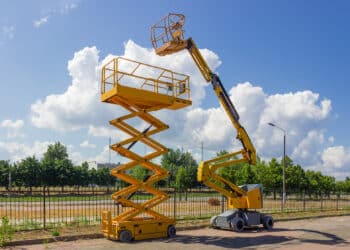Economic uncertainty is creating challenges and opportunities for commercial vehicle dealers, with some buyers acting before potential price hikes.
Dealers reported a 9.1% year-over-year increase in new work truck and van sales in the first quarter, but sales were down 11% quarter over quarter, according to a report by dealer solutions provider Work Truck Solutions. Days to turn for new work trucks and vans rose 65.4% YoY and 12.4% QoQ.
Meanwhile, used-vehicle sales were flat YoY in Q1, but up 3.7% QoQ. Days to turn fell 1.8% YoY but rose 5.8% QoQ.
The mixed results have spurred a range of responses from dealers and consumers amid the uncertainty surrounding tariffs, Work Truck Solutions founder and Chief Vision Officer Kathryn Schifferle told Equipment Finance News.
“The decisioning of when to buy a vehicle is based on business reasons. You may move a purchase forward for a financial reason, but if you need to keep cash around, then you just put it off.”
— Kathryn Schifferle, Work Truck Solutions
Despite the “cloud of uncertainty” that is causing some volatility in dealer operations, many dealers are staying the course because “they have gone through tougher, more uncontrollable times than what we think is happening now,” she said.
New vehicle market woes
Used work truck and van prices declined 6.3% YoY, while new prices rose 0.4% YoY, according to the Work Truck Solutions report.
The used vehicle market saw better QoQ performance than the new market in Q1 and it was largely a matter of cost, Schifferle said.
Used prices have steadily dropped in recent years after supply chain issues caused them to surge during the pandemic. And while OEM production has returned to normal, new-vehicle demand has not caught up, she said.
“At the same time, right now, we’re not seeing a lot of used inventory being traded in because there’s so much new inventory,” she said. “It’s kind of like it skipped a whole year or two of recycling.”
Adding to challenges facing the new-vehicle market, dealers’ floorplan financing costs are “out of this world,” she said.
Applying lessons from pandemic
Tariffs could disrupt supply chains and throw pricing out of whack, challenges that dealers faced during the pandemic. Dealers can apply lessons learned then to succeed in this environment, Work Truck Solutions Chief Executive Aaron Johnson stated in the report.
“Dealers who successfully navigated inventory shortages in 2020 by adopting digital merchandising strategies are in a position to thrive again,” he said. “The ability to showcase available vehicles efficiently, connect with buyers online and optimize inventory visibility has proven to be a timeless advantage — one that will continue to serve the industry through any market disruption.”
With tariffs potentially driving up used-truck demand or delaying large purchases, dealers can capitalize by placing more emphasis on their aftermarket parts and service business, including on-site services, Schifferle said.
“I think that one thing we are definitely seeing is a much higher focus on professionalizing the service part of the commercial business. … Mobile service is becoming a popular added revenue stream for dealers.”
— Kathryn Schifferle, Work Truck Solutions
Reflecting this, Ford Pro’s on-site services are “driving growth in customer paid mobile repair orders,” Ford Chief Financial Officer Sherry House said during the company’s May 5 earnings call.
The third annual Equipment Finance Connect at the JW Marriott Nashville on May 14-15, 2025, is the only event for both equipment dealers and finance providers. Learn more and register here.









